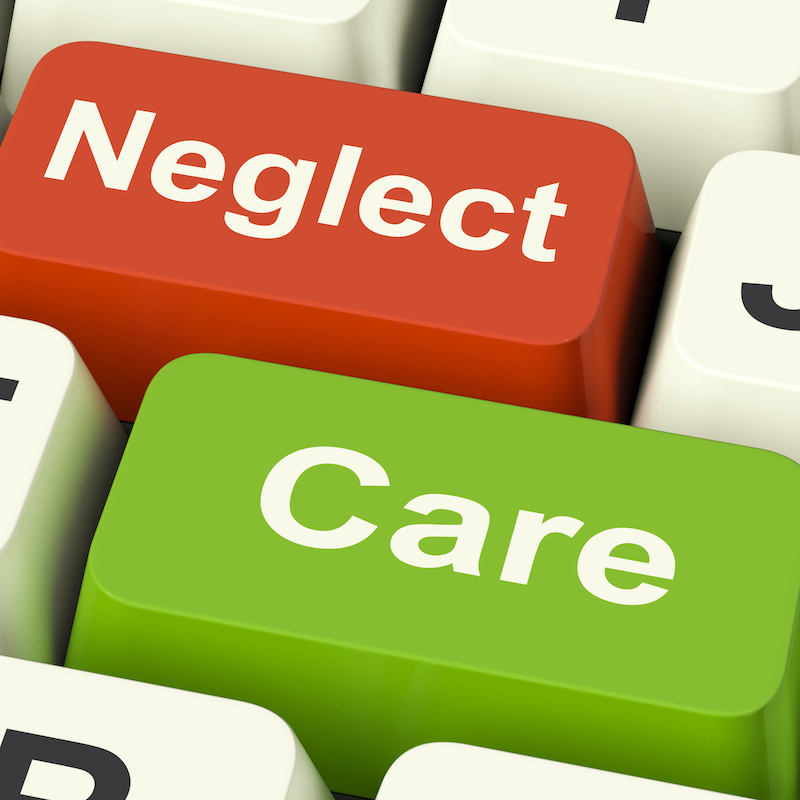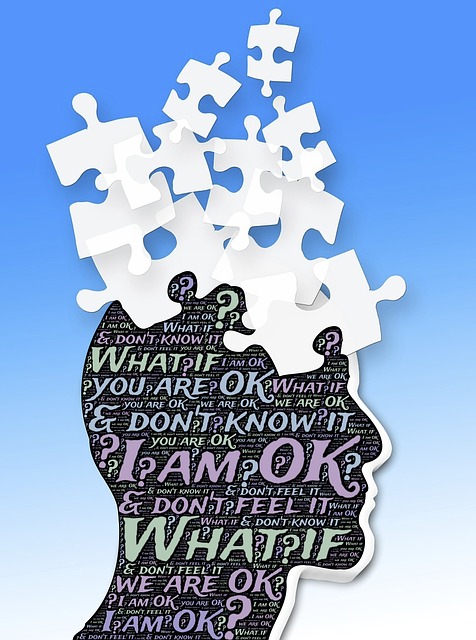Childhood Emotional Neglect: How Marriages Go Wrong When Both Partners Have It

This week, I am sharing a segment of my second book, Running On Empty No More: Transform Your Relationships With Your Partner, Your Parents & Your Children. It’s a vignette from the book that, I wrote for couples and families who are living with Childhood Emotional Neglect. This particular passage from the book explains what it’s like when a couple is living with, and harmed by, the effects of Childhood Emotional Neglect or CEN.
Olive and Oscar are a likable, caring couple who love each other and they clearly want to make their marriage work. But they have been experiencing a severe challenge. They both grew up in emotionally neglectful homes. Unbeknownst to them, they have been living under separate “CEN clouds” when they met, and they have lived under that cloud together for decades.
When Oscar and Olive married, they each lacked the emotion skills needed to make their marriage work. This led to a loving but emotionally devoid relationship that was functional, yet empty; loving, yet distant.
You can read the entire story of Oscar and Olive in the book, Running On Empty No More.
Oscar & Olive in Couples Therapy
An Excerpt From the Book Running On Empty No More: Transform Your Relationships
Olive and Oscar
By the time Olive and Oscar came to my office for couples therapy, their marriage was in serious trouble. Years had gone by with little communication, while misinterpretations and false assumptions grew like weeds in an unkempt garden. Each partner sat fairly expressionless on my couch, struggling to explain why they had come to see me.
“I’m pretty much done with this marriage,” Olive finally said flatly. “We’ve been married all these years, and Oscar still doesn’t know me at all.”
“I do know her extremely well, in fact,” Oscar said. “And that’s the real reason she’s ‘done’ with our marriage.” (Yes, Oscar put sarcastic finger quotes around the word “done.”) “She never admits the real reason she does things.”
As I listened and observed this exchange in our first session, I was amazed.
Interestingly, I was able to tell after only a brief interaction with Olive that she was not the manipulator that Oscar described. I also saw the level of anger that Oscar carried, and how Olive seemed to be quite oblivious to it.
Olive’s abrupt announcement in the session that she was done with the marriage is typical of a person with CEN. Lacking the skills to communicate about subtle and varied emotions, and unable to understand or put the myriad of problems into words, she said the only thing she could formulate to communicate the intensity of her feelings in that moment. I have found that many CEN folks are prone to such extreme statements once they finally decide to voice their pain.
Olive and Oscar, in their double CEN marriage, had two emotional walls to contend with. Sadly, in this marriage, no one was knocking on anyone’s wall. Their chasm had been widening for many years and was now double-wide. They were both intelligent, good-hearted, and likable people, and they seemed like they should make a good couple. Despite the misinterpretations and despite the anger, I could sense the love between them.
Olive and Oscar had no opportunity as children to learn that emotional intimacy exists. Neither of them experienced it in their families or saw it between their parents. Both were intelligent, good, and caring people, but neither had access to their emotions, and neither had the emotion skills necessary to create and maintain true emotional intimacy with a partner.
Childhood Emotional Neglect (CEN) teaches you as a child to ignore and hide your feelings from others, and even from yourself. You learn very early in your life that emotions are useless, troublesome inconveniences and you take this philosophy forward into your adult life. You essentially wall off your feelings so that they will not bother you, and this may seem like a relief.
But, in actuality, you need your emotions to guide and connect you in your life, but the place you need them the most is your marriage.
Feelings are the spice in a relationship, the fireworks, and the glue. It is by working through feelings together that you connect as a couple and become close. An intimate marriage requires emotional exchange, emotional awareness, and emotional vulnerability.
There’s a particular feeling that I get when I work with a CEN couple. It’s similar to the experience of trying to push two magnets together that are facing the wrong directions. It’s like there’s a powerful force field between them, pushing them apart.
The only way to break the force field is to begin to help each partner to better access their own emotions in some small way. By talking about their feelings and their relationship in more nuanced, emotionally enriched ways, they each make a slight turn, followed by another slight turn, followed by another. Bit by bit, they gradually end up turning their faces enough that a slight pull can begin to form.
And when that happens, the real repair work has begun.
How To Learn More
To learn much more about how CEN affects your relationships, watch my Free CEN Breakthrough Video Series.
To read the rest of Olive and Oscar’s story and learn how they faced the Emotional Neglect with their children and with their own parents, see the book Running On Empty No More: Transform Your Relationships With Your Partner, Your Parents & Your Children.
To learn more about Childhood Emotional Neglect, see my first book Running on Empty
The 4 Different Kinds of Neglect and How They Affect You

Neglect: Fail to care for properly.
We can neglect many different things in our busy lives. We can, at different times, neglect our houses, our gardens, our vehicles, or even our own bodies by simply failing to care for them properly. And many of us human beings do one or all of the above at various times.
But there is no form of neglect more personal, more powerful, or more harmful than the neglect of a child. There are several different ways that a parent can neglect a child and we will talk about those shortly.
But first, let’s take a look at some of the factors that can lead even the most caring parents to neglect their child.
Why Neglect Happens
- Finances: This can go all the way from parents who are fighting to survive financially by working 3 jobs or long hours, all the way to the workaholic parent who is defined by their career/income and who therefore places work above all else.
- Knowledge: Some parents have “holes” in their knowledge of what children need. Why don’t they know? The explanation for most of these parents is in the next bullet point.
- The influence of their own childhood: We all learn how to parent from our own parents. Most people automatically use the experience of their own childhood as a template or guide to raising their children. This makes human beings prone to repeat the mistakes of their parents upon the next generation. How do you know what your child needs if your need were not met by your parents? Your parents’ blind spots end up being translated down to your kids unless you learn what was missing and make a personal decision to correct it.
- Personal battles: These are parents who are so taken up fighting for themselves that they have little time or energy left over for their children. They may be depressed, taking care of a sick family member, addicted, or sick themselves. Parents who are battling to keep their own heads above water may inadvertently (or purposely) allow their children to fall through the cracks.
When parents bring a new child into the world, it is their biological imperative to meet that child’s needs to the best of their ability. For that reason, none of the above reasons should be thought of as excuses. It simply does not work that way.
But, on the other hand, human beings are fallible and the world can be rough on parents. Losses, pain, health, deprivation, and struggle can harm parents and prevent them from providing what their children need.
Not all neglect is the same and, unfortunately, most people use the word “neglect” to define all types. It is also common to use the term, “abuse and neglect,” to lump neglect with abuse. This dangerous over-generalization prevents people from talking and thinking more specifically about exactly what they did not receive as a child.
Truly, it’s important. And I want you to help you become aware of what you did and did not receive. As you read the list below, I encourage you to consider which of your needs were well-met when you were a child and which needs may have been less so.
The 4 Kinds of Neglect of a Child
- Physical Needs — Here, we are talking about the tangible and concrete things that you need to survive and thrive. It’s the need for healthy nutrition and water, shelter, comfort, and warmth. Since this form of neglect is visible it may be witnessed by someone outside of the family, like teachers, social workers, or pediatricians. They may step in to intervene and help the child.
- Physical Presence — This is the classic “latch-key child.” In this kind of neglect, the primary caretakers (parents) are simply not physically available enough to you. As a child alone you must fend for yourself so, as a lonely child, you learned how to take care of your own needs. As an adult, you may feel lonely and disconnected, or have a grave fear of needing, asking for, or accepting help from anyone.
- Verbal Interaction — A 2019 study published by d’Apice, Latham, & von Stumm in the journal Developmental Psychology found that children who were talked with the most by their parents had higher cognitive development and fewer signs of restless, aggressive, or disobedient behavior. If your parents did not talk with you enough, you may now, as an adult, feel more alone, less stimulated, and struggle to manage and express your feelings.
- Emotional Neglect — Emotional Neglect is literally what it sounds like. It is the neglect of your emotions. Emotionally neglectful parents may be loving and providing for all of your needs. But these parents simply do not notice, respond, or validate your feelings enough. If you grow up with your emotions ignored, you end up with your own feelings walled off and relatively inaccessible to you. This leads to a multitude of predictable struggles in adulthood like a feeling of being different, alone, and unsatisfied with your life.
Most adults who look back on their childhoods and see that all of their physical needs were met find it hard to believe that they could have been neglected in any way. Yet “neglect” is far more complex than that.
For example, your stay-at-home mom may often be home and may drive you to every activity, yet fail to notice or respond to your feelings (Emotional Neglect). Or your dad, who talks a lot, may simply be talking about impersonal logistics and facts, and end up still emotionally neglecting you.
The opposite is also true. Your parent who is struggling and rarely home may show such emotional care and attunement with you that you feel deeply known, understood, and loved by them. In this case, the physical presence type of neglect you experience may do far less harm.
Take a few minutes to think about this. What did you get and what did you miss? Is it missing in your life now? If you are a parent or hope to be one, are you able to provide those missing ingredients to your children?
It is entirely possible to see what you didn’t get, understand why your parents could not, or did not, provide it, and fill those gaps for yourself. It is a process of providing yourself with the physical, attentional, and emotional nurturance that was missing for you.
Amazingly, once you have given yourself what you didn’t get, you can give it to others. Especially your own children. The reality is there is nothing more important than that.
CEN can be hard to see or remember so it can be difficult to know if you have it. To find out, Take The Emotional Neglect Questionnaire. It’s free.
To learn more about Childhood Emotional Neglect, see my first book Running on Empty
How COVID-19 May Be Affecting Your Relationship With Your Emotionally Neglectful Parents at the Holidays

Two things are going on right now that are causing more pain in adults’ relationships with their emotionally neglectful parents. Care to guess what they are? It’s the holidays plus the COVID-19 Pandemic. Mixed together, they create a cocktail of uncertainty, worry, emotional distance, and feelings of emptiness.
COVID-19 is affecting many people in many different ways. But one effect that is shared by most, perhaps virtually all, of us these days is that it, especially combined with the holidays during this unusual year, is making us feel more vulnerable.
Exactly what do I mean by vulnerable? I mean many different flavors of vulnerable feelings.
In this unprecedented time, you may be feeling more physically, socially, and emotionally vulnerable than usual and perhaps more so than ever before in your life.
You may feel physically vulnerable due to the risk of getting sick.
You may feel socially vulnerable due to being cut off or distanced from your family and friends.
And you may be feeling emotionally vulnerable, a product of all three of the factors above. On top of all that, most of us are spending more time alone with fewer distractions. The pandemic, with its social distancing, requires you to sit with yourself more, so it’s difficult to escape your feelings, anxieties, doubts, and fears. And they may be many.
Your Relationships
As COVID-19 drags on, the holidays approaching, and the world awaiting a vaccine, many relationships have been affected. Some have been enlivened or deepened or enriched. Marriages, friendships, and families have become closer, more mutually dependent, and more supportive.
Other relationships have been strained by the present situation we are in. They have been challenged, weakened, frustrated, broken, or pained.
As someone who hears from hundreds of people every week who are doing their best to cope with the pandemic, as well as the holidays, one of the relationship types that I have noticed taking a lot of boosts, as well as hits, are the relationships between CEN adults and their parents.
Whatever your situation with your parents, the pandemic may be complicating it. Your parents may live nearby or far away. You may have had issues with your parents before COVID-19. Your parents may be healthy emotionally and physically or they may be elderly and frail. They may be living in a facility.
Whatever the circumstances, I believe that millions of people are feeling extra vulnerable right now and are finding themselves struggling with their parents in some new way. And it is all due to circumstances that are completely out of their control.
7 Ways COVID-19 + the Holidays are Affecting Adults’ Relationships With Their Parents
- You may feel a need to reconnect. As the 2020 holidays approach, you may have become somewhat distant from your parents. Whether that was intentional or unintentional, you may find yourself feeling a longing to be more in touch with them.
- You may worry about their physical and mental health. The Pandemic may be making it hard for you to communicate with or see your parents. You may feel less able to be involved in their choices or care.
- You may feel more in need of validation. All human beings need to feel seen and known and loved by their parents. We need to hear certain things from our parents that assure us that our feelings and needs matter. If we don’t receive enough of that in our childhoods (Childhood Emotional Neglect or CEN), our brains automatically continue to seek it as adults. To need this from your parents is not a sign of weakness, but of your humanity. Feeling vulnerable right now in general may make you need this validation from your parents even more. It’s painful.
- You may feel afraid of losing them. Will your parents get COVID? You may find yourself worrying about or imagining how you would feel if you lost them.
- You may find yourself appreciating them more. There’s nothing like a fear of loss to make you more appreciative. You may be feeling more love, more warmth, or gratefulness for what your parents have done for you.
- You may experience them as needy. Are your parents calling you more often, asking you for help or advice or support? Do they need to connect with you more often than has been typical of them? This is likely because they are feeling vulnerable or worrying about you.
- Family dynamics may be intensified. Not surprisingly, stress aggravates previously existing problems of all kinds. So, in many families, old anger or frustration, or resentment has been fomenting and increasing under the powerful pressure and strain of COVID-19.
The Role of Childhood Emotional Neglect
If you grew up in an emotionally unavailable (CEN) family, you may be experiencing several of the effects above. You may feel a longing to receive the ingredients that were missing from your childhood, while also feeling distant and helpless and disappointed in your parents.
When you do not receive enough emotional attention, empathy, meaningful conversation, or validation from your parents as a child, (Childhood Emotional Neglect or CEN) you are naturally, as an adult, continually driven back to try to capture it. But your CEN parents may simply not have it to give, and this compounds your pain.
3 Ways to Cope
- Put yourself first. Your parents are important people, of course, but your primary responsibility in life is to yourself. So be sure to prioritize your own needs during this stressful time. Your physical, mental and emotional needs must be addressed before you can give to others, even your parents.
- Try to accept what you cannot change. This wise principle is one of the tenets of 12-Step Programs and it applies here. You do not have control over your parents and you cannot change their choices. You also cannot get from your parents what that they do not have to give, like emotional validation, empathy, or connection. Accepting your powerlessness in this relationship can be quite painful, but it does protect you from the wheel-spinning and frustration of continually going back to an empty well, looking for the emotional connection that never appears.
- Take note of what your feelings are telling you. Your feelings are communications from your body. Every feeling carries a specific message. For example, the feeling of longing drives you to contact them more, whereas anger/frustration tells you to take protective action. Your feelings are trying to guide you, but there is a second question to ask yourself: Is this feeling telling me to do something healthy for me or something that may be unhealthy or damaging? It is important to notice and listen to your feelings, but it’s important to process them first. Sometimes, it can help to run this by someone you trust to gain a more objective opinion of what is healthy for you.
Most likely, this pandemic is affecting many of your relationships for better or for worse. And now, with the holidays upon us too, the one thing you can do right now that will make you stronger in every area of your life: nurture yourself, care for yourself, and pay attention to what you are feeling.
When you feel vulnerable, treat yourself as if you are your own number one. Because you are.
Wonder if you grew up in an emotionally neglectful family? Take the Emotional Neglect Questionnaire. See the book Running On Empty to learn what CEN is and how it affects you now; and Running On Empty No More: Transform Your Relationships to learn how you can heal CEN with your partner, parents, and children.
5 Challenges of Valentine’s Day and How to Overcome Them

Is Valentine’s Day just one big commercial created by the card companies? Actually, no, it is not. It’s a holiday that is rooted in ancient history. Valentine’s Day is thought to originate from the ancient Roman festival of Lupercalia that was held each year in the middle of February. It was a happy occasion which, in addition to celebrating spring, also included fertility rites and a lottery that paired men and women together based on the drawing of names.
Sounds fun, right?
Society has changed since ancient times, and Valentine’s Day has transitioned through the centuries into something quite different. It’s supposed to be a happy celebration of love and, for many, it is. But it also poses unique challenges to people married and single, dating or not dating, wishing for a relationship, or happy alone.
Let’s start by taking a look at the various challenges of Valentine’s Day. You may identify one, several, or even all as applying to you. Either way, no worries. There are answers!
5 Ways You May Be Challenged By Valentine’s Day
- You are uncomfortable with emotions. Valentine’s Day is, without a doubt, an emotional holiday. With its emphasis on love and relationships, it practically commands you to have, share, and express feelings with your significant other. But not everyone is comfortable with emotions. If you grew up in an emotionally inexpressive, emotionally repressed, or emotionally neglectful family, you may be particularly uncomfortable with an emotion-based holiday like this.
- You are set up with high expectations. This is how V Day is like every other holiday. As a designated day to celebrate your relationship, V Day sets you up with high expectations to feel loved, cared for, and valued by your partner. Since these feelings cannot be summoned on demand, this can be a setup for disappointment.
- You are in a struggling relationship or are looking for a relationship. As a holiday that’s focused exclusively on couples, Valentine’s Day makes you hyper-aware of your relationship status. That’s why for every person who’s looking forward to Valentine’s as a way to celebrate their love, there are several who are dreading the holiday because of the way it makes them feel. You may wish you were in a relationship, or you may be in a struggling marriage. How do you celebrate a non-existent or unhappy relationship?
- You are content being single. Being in a couple is not a requirement for happiness. Many people purposely and comfortably choose not to be in a relationship. If this is you, you may find yourself receiving sympathy you don’t need or want as a result of this holiday. That can be very uncomfortable.
- The holiday brings up grief over past or current losses. Valentine’s Day has a way of reminding you of everyone you have loved. If you have lost a past loved one via death, break-up, or divorce, or are in the process of transition in your life, you may experience some fresh grief on this day.
You Are Not Alone
All of these challenges can affect anyone, of course. But they are especially problematic for you if you did not receive enough emotional validation and emotional connection from your parents during your childhood or, in other words, if you have Childhood Emotional Neglect (CEN).
If you struggle with any or all of these challenges this Valentine’s Day, I want to first tell you sincerely that you are not alone!
And it is surely not a bad thing to be challenged. Every challenge you encounter in your life is actually an opportunity for growth. And this holiday is no exception. I’m going to prepare you for Valentine’s Day by helping you use it as a way to flourish and progress forward in your life.
3 Ways to Prepare For the Challenges of Valentine’s Day

- Let yourself feel whatever you feel this holiday. Your emotions emanate from your central nervous system so you cannot — and do not — choose what you feel. It’s vital to pay attention to what you are feeling in your relationship. Your feelings will guide you; they’ll tell you when you need to reach out to your partner, give more, speak up for yourself, set limits, or protect yourself. Feelings can be painful or positive but, in the end, they are only feelings. Feelings do not follow a moral code, they are not always “right,” they don’t always make sense, and you can feel two opposite things at once. You are responsible for knowing and managing your feelings, but not for having them. You can learn much more about how emotions work both in and out of relationships in the two Running On Empty books.
- Don’t get caught up in the trappings of the holiday. If you are celebrating with your partner, be thoughtful about what you feel toward them. Whether you offer a card, a gift, or a plan, focus less on impressing your person and more on communicating your true feelings to them. That is what this holiday is actually about.
- Allow yourself to acknowledge and grieve what you have lost. Grief has a way of coming and going. It is easily touched off by holidays such as this. When you try to avoid your grief, it only makes it stronger. The best way to deal with your grief is to allow yourself to feel it. Set aside a specific time in your day to sit alone and think about what you have lost. Feel your feelings, and consider what you’ve lost; then engage in something healthy and soothing. Allow yourself to move forward with your day.
The Takeaway
Whether you are happily single or actively seeking your person, use this day as an appreciation day for yourself. Consider the gifts you were born with and the qualities you are able to offer others. Think about what you like, what makes you happy, and what you want and need. Consider who the important people in your life are, and allow yourself to feel grateful for them. This day is your day to love and appreciate yourself.
Overall, keep this holiday in perspective. Try not to expect your partner to make you feel a certain way and, conversely, try not to expect to make your partner feel any particular way. Instead, keep your focus on simply having an enjoyable time. And keep in mind that it’s no one else’s role to make you happy. We are each responsible for our own happiness.
Relationships have extraordinary power to bring us happiness and fulfillment, yes. But they cannot be the primary source of our feelings about ourselves or our lives. Ultimately, we are each responsible for our own feelings and for making sure our own needs are met. Also, it’s hard for others to love us when we don’t yet love ourselves.
So, paradoxically, this holiday about couples is best spent focused on the very most important person in your life: yourself.
Childhood Emotional Neglect is invisible and hard to remember so it can be difficult to know if you have it. If you struggle to understand and express feelings in your relationships, Take the Emotional Neglect Test. It’s free.
To learn much more about getting comfortable having and sharing feelings in your relationships see the book Running On Empty No More: Transform Your Relationships.
5 Ways Childhood Emotional Neglect Makes You Feel Unloved as an Adult

Here is a fact that may surprise you. When you grow up in a family that ignores, devalues, or eclipses your feelings, it damages your ability to feel loved as an adult.
Hard to believe, I know, but it is true. I have seen it over and over and over again in my therapy office as I work with folks who grew up in emotionally neglectful families.
I see good, loving people with a lot to offer and much about them to love, who are incapable of fully accepting and experiencing the love that naturally comes their way.
Childhood Emotional Neglect is, in fact, the silent killer of love. It undermines the feeling of love in a family in myriad invisible but powerful ways. It raises children who are emotionally restrained and disconnected from themselves and held back from becoming who they are meant to be.
Growing up with your feelings ignored requires you as a young child to develop some special skills. You must learn how to hide your emotions, the deepest, most personal, biological expression of who you are, from your family.
Pretending you don’t have feelings is like pretending you have no right arm. To make them invisible, you must make sure you do not have them. And this comes at a great cost to you.
So perfectly lovable people walk the earth feeling unloved and people drag their CEN spouses to couples therapy because they feel shut out. And none of it is okay.
5 Ways Childhood Emotional Neglect (CEN) Makes it Hard to Feel Loved as an Adult
You didn’t experience enough deep and personalized love as a child.
All children have a basic need to feel seen, known, and loved for who they really are. In an emotionally neglectful family, living under the “hold your feelings back” mandate, you are forced to hide this key part of yourself. How can you feel a depth of meaningful love from your family when the deepest, most meaningful part of you is never seen? So you may grow up knowing that your parents love you, but not feeling truly loved. Since the love we receive as children sets up our expectations for love as adults, you are now set up with a lowered ability to absorb and feel love. Having experienced a watered-down version of love from the people who were supposed to love you the most, it is all you know.
You are walled off from love.
As a child, you had to harden yourself against your own natural need to feel loved. Above, I said: “All children have a basic need to feel seen, known, and loved for who they really are.” All children also need emotional validation and nurturance from their parents. As a child, you naturally looked to your parents, over and over again, for those things. And, as a child, over and over again, you were disappointed. Eventually, you learned that there was no water in the well and stopped seeking it. You walled yourself off from your need for validation and love. Where is your wall now? You still have it. And it is blocking you off from the genuine love coming your way.
You don’t trust feelings in general, and that includes the feeling of love.
When your parents discouraged your emotions, they inadvertently taught you some false lessons about emotions. They taught you that emotions, in general, are useless burdens that are best avoided. Now, as an adult, it’s difficult for you to feel that feelings, including love, have value. Some part of you automatically rejects the love that comes your way.
Disconnected from your emotions, it’s hard to feel your feelings, in general.
Your solution as a child was to wall off your feelings as best you could. This is the reason so many adults who grew up with CEN experience a sense of emptiness or numbness: their feelings are still blocked off. When it comes to our feelings, we cannot pick and choose. Unfortunately, out the door goes your anger, happiness, joy, and pain, and along with it goes your love. All of these feelings are sitting on the other side of your wall waiting for you to accept and acknowledge them.
Fear of vulnerability.
To love is to be vulnerable, there is no way around it. When you don’t quite trust feelings in general and you are not accustomed to being seen, validated, and known, love can feel more like a challenge than a gift. It’s scary. You may hold back parts of yourself, fearing that if people see the real you, they will leave. Perhaps you see rejection lurking around every corner. Perhaps you are afraid to initiate friendships or activities because you fear that doing so may be burdening the other person or chasing them away. Fear of vulnerability may be holding you back from the satisfying connections you deserve.
The Solution
One thing I have learned from working with hundreds, perhaps thousands of CEN people is that it is never too late to change and heal. All of the ways that CEN happened to you as a child can be reversed by you, an adult. Begin to follow these steps now.
- Childhood Emotional Neglect can be quite subtle and is difficult to see and remember. To find out if you may have grown up with it Take the Emotional Neglect Test. It’s free.
- See the books, Running On Empty: Overcome Your Childhood Emotional Neglect and Running On Empty No More: Transform Your Relationships and learn everything you can about Childhood Emotional Neglect: how it happens, its effects, and the healing process.
- From the above, you will learn the concrete steps you can take to get in touch with your emotions, learn how to use them, and by honoring your deepest self, change how you are living your life. Choose two goals for yourself to begin your healing.
You can do it. It’s never too late. And, most importantly, you deserve it.
The 4 Personal Traits That Make it Hard To Take Criticism

Scott
“Scott, I feel uncomfortable at parties sometimes when you tell a story real loud. I know you’re not doing it on purpose, but it embarrasses me. Can you try not to talk so loud?” Andrea said to her husband.
Immediately, Scott’s face turned red. He felt a combination of shock, rage, and hurt. “I-I-I-,” he stuttered. Then he ran down the steps to the basement, slamming the door behind him. Downstairs, he turned his music up as loudly as he could and started lifting weights furiously.
Rebecca
“So now that I’ve explained all the great strengths you bring to the job, Rebecca, there is one thing I’d like you to try to improve over the next year,” her supervisor said as they discussed Rebecca’s 6-month job evaluation. “I want you to work on giving your direct reports more clear feedback about their performance.”
As her supervisor explained that she wasn’t challenging her employees enough, Rebecca’s field of vision literally went blank. Her thoughts were swirling so quickly in her head that she barely heard anything else her boss said. “How can she say that?! I just gave someone feedback yesterday. She doesn’t know what she’s talking about. I’m going to start looking for a new job.”
Do you identify with Scott or Rebecca? Is it especially difficult for you to hear negative comments about yourself, your actions or your performance, even from people who you know deep down have your best interests in mind?
4 Personal Traits That Make it Hard to Accept and Respond Well to Criticism
- Lack of self-knowledge. How well do you know yourself? Do you know your own strengths and weaknesses, talents and challenges, preferences and tendencies? What do you want? What do you like? And why? Not knowing yourself deeply and well leaves you overly vulnerable to other people’s opinions. It also leaves you with little to call upon when you need it. If you knew yourself well enough, when your wife gives you a specific critique, it’s OK. Because you know you have plenty of other strengths that make you good enough as a person even if you make a mistake. If Scott had enough self-knowledge he would feel somewhat hurt by Andrea’s comment, but he would be able to think it through and realize that people generally like him, that he has natural good humor, and that Andrea’s discomfort is more about herself than him. He would say, “Oh, OK Andrea. I’ll try to be aware.”
- Low compassion for yourself. Everybody makes mistakes, no exceptions. It is what we do with those mistakes that matters. When you have compassion for yourself, there’s a voice in your head that helps you think through criticism, take responsibility for your mistakes while at the same time having compassion for your humanness. I call it the Voice of Compassionate Responsibility. It steps in when you receive criticism and talks you through it. If Rebecca had the Voice of Compassionate Responsibility, instead of thinking about a new job, she would have been thinking: “OK, so she thinks I’m not giving negative feedback to my people. I do know I’ve always struggled to say difficult things. Even though I’ve been trying, maybe I need to try even more. My overall communication skills are good. I can rely on those to help me. This will be a work in progress.”
- Difficulty managing your feelings. Scott and Rebecca both have this challenge in common. They are each when receiving criticism, flooded by emotions that render them helpless at the moment. Both feel a combination of shame and anger immediately upon hearing the criticism, and neither knows what to do with it. Neither has the skills to notice what they are feeling, name those feelings or manage them so that they can have a conversation.
- Lack of assertiveness. Assertiveness is a skill. It is the ability to speak your truth in a way that the other person can hear it. To be assertive you must first know what you feel and manage those feelings, as described in #3. When you’re aware of your anger you can listen to its message. It may be telling you to speak up and protect yourself, and it is vital that you listen. If Scott had assertiveness skills, he might say to Andrea, “Everyone was loud at the party, and I didn’t think I was any louder than anyone else.” Andrea would respond by speaking her truth. They would have a back-and-forth conversation, and this might enable them to learn about each other, listen to each other, and perhaps forge some kind of mutual understanding.
The Role of Childhood Emotional Neglect (CEN)
These four character traits are all hallmarks of one common childhood experience. In fact, they are essentially the footprint of Childhood Emotional Neglect or CEN.
Growing up in a family that does not address the feelings of its members (the definition of CEN) leaves the children to move into, and through, adulthood lacking some vital skills.
How can you learn who you are when the deepest expression of that, your feelings, are ignored by your parents as they raise you?
How can you have empathy for yourself when your parents were unable to show you compassion and empathy while they raised you?
How can you learn how to manage your emotions when your emotions were ignored in your childhood home?
How can you know how to speak your truth when, as a child, your truth was not accepted by your parents?
How to React Well to Criticism
Before you start to think it is too late for you, I want to assure you that it is absolutely not.
You can begin to work on thinking of criticism in a new way: like someone’s opinion, which may or may not be true, and may or may not be useful to you. You can realize that criticism is often a useful and valuable way to become a stronger and better person.
You can start to pay more attention to the best source of strength, purpose, connection, validation, and direction available to you, your feelings.
To learn much more about Childhood Emotional Neglect, how it happens, and the struggles it leaves you with throughout your adulthood, see the book Running On Empty: Overcome Your Childhood Emotional Neglect, available in bookstores and online everywhere.
Most people who grew up with CEN have no idea that it happened. To find out if you grew up with CEN, visit EmotionalNeglect.com and take The Emotional Neglect Test. It’s free.
Childhood Emotional Neglect Took Your Voice Away: How to Take it Back

Childhood emotional neglect in a family dwells in the echoes of what’s not said, what’s not asked, and what’s not done.
In my work as a psychologist, I have seen how the absence of meaningful talk about feelings and a shortage of personal questions in a family can leave its children with an internal emotional block. These children grow up to be adults who had something vital robbed from them in childhood. And very, very few of them even know it was taken or that it’s now missing.
It’s their voice.
Not literally, of course! Most emotionally neglected people have plenty to say and they say it. They are quick to say things like:
How are you?
Is something wrong?
I’m happy to take on that task. Go ahead and assign it to me.
Sure, I’ll do that favor for you.
I don’t need any help.
I’m fine.
All’s well here!
While all of the above may seem like a random collection of statements, they all share a common theme. They are all about “you” and none about “me.” They are all made frequently by people with childhood emotional neglect. They convey the life stance of those who grew up with their emotions ignored.
The Voice of a Healthy Child
If you are ever around a typical infant, then you are familiar with the infant’s voice. All the way from birth through the age of 2 or 3 they express themselves very freely. Before they have words, they cry or giggle to communicate what they feel. As they get a little older, they point and say nonsense words. They yell and point out the car window and say, “Truck!” as soon as they know how to say it.
My point is that children are born with a voice that they are innately wired to use. What a baby feels and thinks has no filter. It comes out automatically and immediately.
But sadly, too many children must start filtering their voices all too much and all too soon.
The Emotionally Neglected Child
Imagine being an older child who gets your feelings hurt (as all children inevitably do). Your face and body language show your feelings very clearly for all to see. But your parents go on as if everything is fine. They don’t even seem to notice.
Imagine going to your parent for help, but, too often, for whatever reason, they are not responsive.
Imagine walking through every day of your life as a child seldom being asked personal questions by your parents. Questions like:
What are you sad about?
Did something happen at school today to get you upset?
Is this scary for you?
What do you want?
What do you feel?
What do you need?
When you don’t get asked these questions enough, it is natural for your developing brain to assume that your personal feelings, wants and needs do not matter. After some time, you learn that you may as well not express them because no one really cares anyway.
Imagine going through every day of your life as a child receiving little feedback about who you are. Feedback such as:
You are amazing at math. But we need to put some time into increasing our vocabulary.
You seem to get bored and distracted at baseball practice.
You have a great sense of humor!
Your temper gets the best of you sometimes.
You’re my little pizza lover.
You like to help others. It’s so sweet to see.
I love how you want to make the people around you laugh.
You seem to be unhappy when your friend _______ is here.
When you don’t hear these observations and feedback enough, you don’t get to learn two vital things that you are meant to learn in childhood:
You don’t get to learn who you really are
And you do not find out that you are worth knowing.
The Voice You Were Born With
This is how, growing up in a family that did not notice, validate, or show interest in you enough, you learned that your feelings do not matter.
It is how, bereft of enough emotional response and care, you learned that you should keep your true self under wraps.
This is how, by asking for things and having your words enter an empty void, you learned that it hurts to speak up.
It is how childhood emotional neglect took your voice away.
You Can Take Your Voice Back
You were born with a strong voice, but your childhood took it away. So, you do not now need to create a new voice, you just need to recapture what you once had. Your voice is there, inside of you, waiting to be reclaimed.
- Learn everything you can about childhood emotional neglect. As you do you will begin to realize how it happened to you, and you will start to see it in many different aspects of your life. You will discover how disconnected you have become from your true inner self, and how that has disconnected you from others. Understanding this will help you see how there is a “you” inside that you have been ignoring all these years.
- Start tracking what you want, feel, and need. What do you like? What do you enjoy? Who do you want to be with? Where do you want to go? What bores you, annoys you, or troubles you? Pay attention.
- As you become better aware of who you are, you can learn the skills to express yourself. Learn all you can about assertiveness, which is the ability to say difficult things in a way that others can, and will, hear it. Practice saying, “I want…,” “I feel…,” “I need…,” and maybe even, “I think…” Each time you speak up makes it easier to do it the next time.
Send Healthy Messages to Your Deepest Self
Just as each time you speak up makes the next time easier; each time you pay attention to that small, quiet child within, you send him or her a powerful message.
By doing the opposite of what your parents did, by providing for yourself what they couldn’t give, you are validating who you are, and listening to what you need. You are saying to yourself and that silent little child within You Do Matter.
What do people do when they know that they matter? They express their feelings, their desires, and their needs. They speak up when needed to protect themselves.
What will you do when you realize that you matter? You will learn to speak your truth.
You will take your voice back.
Childhood Emotional Neglect or CEN can be subtle and invisible so it can be hard to know if you have it. To find out, Take The Emotional Neglect Test. It’s free.
To learn more about Childhood Emotional Neglect, how it happens, and how to recover from it, see my books Running Empty No More: Transform Your Relationships and Running On Empty: Overcome Your Childhood Emotional Neglect
How Childhood Emotional Neglect Affects Your Adult Work Life

Barry is good at his job as the manager of a department store, so he continues to do it year after year. But in the back of his mind, he wonders how he ended up here.
Sharon received the Most Dedicated Salesperson Award.
Francesca watched in frustration, feeling overlooked, as her co-workers were promoted over her head, one after another.
Simon’s manager appreciates how quickly he has adapted to his new role in the company, and how little support he’s needed.
Will’s boss gave him a “Needs Improvement” rating, citing inadequate communication with co-workers.
Elizabeth toils away behind the scenes in her customer service job, trying not to call attention to herself. She has no idea that she is capable of much more.
If you have ever been in one of the situations above, you know how it feels. Barry, Francesca, and Elizabeth are in painful situations in their jobs, while Sharon, Simon and Will are thriving in theirs.
You may be surprised to learn that all six of these folks’ job experiences, as different as they are, arise from a common underlying cause. All six grew up in households where their parents overlooked their emotions. They all grew up with Childhood Emotional Neglect (CEN).
The funny thing about CEN is that it leaves you with a particular set of challenges. But in some situations, those challenges can actually become your strengths. When it comes to the workplace, CEN is a double-edged sword.
The Advantages of CEN in the Workplace
- You give a lot, and ask for little. Since your emotional needs were treated as unimportant when you were growing up, you now have a hard time feeling okay about having needs, like a day off, a vacation or a raise. This makes you a highly dedicated and desirable employee.
- You are self-contained. When you needed help as a child, no one was there for you enough. Now, you are afraid to need help, for fear that you will be let down or viewed as weak. Your default setting is, “I can do this on my own,” and everyone around you can see it.
- You are remarkably responsible and reliable as an employee. As a child, you knew that you were mostly on your own, so you became ultra competent. Someone needs something? You’ll make it happen. A problem came up? You’ll fix it. Others know they can rely on you.
The Disadvantages of CEN in the Workplace
- Inaccurate self-appraisal: Growing up, you didn’t get enough feedback about your true nature; nor were you encouraged to pay attention to who you are. So now, it’s hard for you to know what you want, what you enjoy, and what you are good at. This can make it hard for you to choose the right career that will feel fulfilling and gratifying for you.
- Difficulty asking for things: Asking for things that inconvenience others feels somehow wrong to you, so you err on the side of giving too much of yourself. It’s harder for you to ask for a vacation, a raise or a promotion than it is for most people, and this puts you at a disadvantage.
- Communication is not your strong point: Talking was not encouraged in your childhood home. So now it may not come naturally to you. If your job requires you to manage difficult situations with others, or talk about interpersonal problems, you may struggle to make yourself talk, and it may be hard for you to know what to say.
The folks who are the most rewarded by, and successful in, their jobs are strong communicators. They know themselves well, and they pay attention to what they are feeling and why. They ask for what they want, and they accept help when they need it.
You can become this way too.
Begin right now to focus more on learning who you are. What do you enjoy? What do you like? What are your strengths and weaknesses?
Begin right now to pay more attention to your needs. Have you earned a raise? Do you deserve a promotion? Are you due a vacation? If so, ask for it.
Begin right now to change how you relate to others. Talk more, take on more interpersonal challenges. Watch how others discuss difficult topics, learn from it, and practice.
Others have seen your strong points for years, and have benefited from your competence, and your giving, independent nature. Now it is time for you to recognize what you have to offer, and ask for what you deserve.
You are worth it.
To learn more about Childhood Emotional Neglect (CEN), how it happens and how to learn the skills you missed, visit EmotionalNeglect.com and Take the Emotional Neglect Questionnaire. It’s free!
To learn more about Childhood Emotional Neglect, see my first book Running on Empty.
